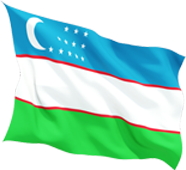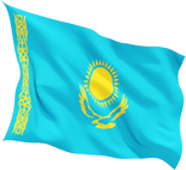Uzbekistan has been undergoing a transformational journey since it changed political leadership in 2016. The nation is implementing extensive reforms aimed at spanning anti-corruption measures, business climate enhancements, judicial reforms, improving labour conditions, administrative efficiency, protection of human rights, and good governance.
Central to these reforms is a comprehensive anti-corruption agenda bolstered by strong laws and strategic plans. Reforms have targeted diverse sectors, with a focus on improving public administration, ensuring quality public services and information access, and overhauling the judiciary. Over the recent years Uzbekistan has made significant efforts to help its people feel confident that leaders in the national public and private sectors operate in a transparent and ethical way.
As we know, international standards in this area focus on the following elements, which are intended to increase effectiveness of prevention and combating corruption:
- Imposing additional restrictions for civil servants;
- Increasing transparency in the private sector, e.g. identifying beneficial owners;
- Strengthening the role of financial intelligence units in combating corruption;
- Strengthening corporate and individual liability for corruption offences;
- Supporting collective action initiatives.
In line with the abovementioned standards, since the adoption of the law on anti-corruption in 2017, Uzbekistan has doubled its efforts to prevent corruption in the public sector and has widened international cooperation to achieve this end. Since coming to power in 2016, President Shavkat Mirziyoyev has taken steps to liberalise the Uzbek economy and denounce corruption.
President Shavkat Mirziyoyev has begun liberalising the economy, which has started to attract significant investments from China and the EU and contributed to Uzbekistan’s strong economic growth. In particular, Presidential Decree of 2017 took steps to tackle the shadow economy by permitting the free purchase and sale of currency and the use of international mechanisms to set currency conversion rates. This decree eradicated the decades old “black market” where the difference between actual and official conversion rates was around 50%.
In 2020, President Shavkat Mirziyoyev established a
new Anti-Corruption Agency via President Decree No.6013 and launched a
mandatory online public procurement platform. The Anti-Corruption Agency is
tasked with studying researching corruption, engaging with civil
society, and enhancing transparency.
The number of arrests and prosecutions of public officials for corruption has increased. According to Prosecutor General’s Office, for example in 2022, there were a total of 3,116 convictions of public officials, of which 110 officials were from the national agencies, 264 from provincial agencies and 2,742 from city and district state bodies. The majority of these cases related to embezzlement (2,103), abuse of position (265), fraud (243) and bribery (169).
The fight against corruption has become a priority area of state policy in Uzbekistan. This can be seen in the conceptual regulatory acts adopted in recent years in this area, on the example of administrative reforms aimed at preventing corruption. The country has established an effective mechanism of countering corruption, including efficient normative-legal base and institutional foundations. More than 70 regulatory acts aimed at combating corruption in all sectors of state and public construction have served as a solid basis for the implementation of these reforms.
The Law on Combating Corruption, adopted in 2017 soon after Mirziyoyev came to power, is the main legal basis for countering corruption in Uzbekistan. The law requires state employees to inform their supervisors about corruption offences they may be directly or indirectly involved in and is meant to ensure protection for whistleblowers. Further, the law grants media outlets the right to request information on corruption offences from state agencies. It also envisages the mandatory examination of regulations being drafted by ministries and other state agencies to ensure they do not create new opportunities for corruption.
Information on state procurement is posted on the website www.d.xarid.uz. The open data portal (data.gov.uz), the registered database of legal entities and commercial entities (my.gov.uz) and other platforms play an important role today in ensuring the principles of openness and transparency and public control, which are the most effective tools for combating and preventing corruption. Licensing and permitting procedures have also been radically improved to completely improve the business and investment climate, remove unnecessary bureaucratic barriers and outdated regulations.
According to the National Database of Legislation of the Republic of Uzbekistan, other important legislative acts in the area of anti-corruption include:
• the Constitution (last amended in May 2023)
• the Criminal Code
• the Law on public civil service
• the Law on public procurement
• the Law on public-private partnerships
• the Law on distributing legal aid information and ensuring access to it
• the Law on the openness of state authorities and administration
• the Law on e-government
• the Law on public control
• the Law on countering legalisation of income derived from criminal activities, financing of terrorism and financing the proliferation of weapons of mass destruction (last amended in January 2019), which provides a legal framework for anti-money laundering.
The Civil Service Law, which entered into force in 2022, forbids civil servants from accepting gifts, from engaging in business activities and from opening foreign bank accounts or purchasing real estate abroad. It also introduces a system of mandatory declaration of civil servants’ assets and income.
Under Article 7 of the 2017 Law on Combating Corruption, state agencies responsible for implementing the law on combating corruption include the Anti-Corruption Agency (ACA) established in 2020, General Prosecutor’s Office, the State Security Service, the Ministry of Internal Affairs, the Ministry of Justice, and the Department on Fighting Economic Crime under the General Prosecutor’s Office.
There is also a National Council on Combating Corruption and its territorial bodies that aim to coordinate the efforts of all the relevant institutions and develop state anti-corruption programmes. The ACA serves as the working body of the Council, which is headed by the Chair of the Senate. The ACA has a preventive mandate authorising it to request state agencies to provide documentation on their expenditure of public funds, sales of state assets and public procurement as well as on their investment projects and implementation of state programmes. It can also consider appeals of citizens and legal entities on corruption issues and conduct administrative investigations into corruption offences, the results of which should then be shared with law enforcement bodies.
Uzbekistan is a signatory to the United Nations Convention against Corruption (UNCAC) as well as to the Istanbul Anti-Corruption Action Plan, which is the main subregional initiative in the framework of the OECD Anti-Corruption Network for Eastern Europe and Central Asia (ACN). Uzbekistan has recently become a member of the Global Operational Network of Anti-Corruption Law Enforcement Authorities.
It should be emphasised that each regulatory legal act in Uzbekistan is being developed based on the principle – “legislation free from corruption”, systemic preventive measures in the practice of combating corruption are being strengthened, and the public oversight is supported by establishing interaction mechanisms with civil society institutions.
The mentioned and other measures have contributed to improving the fight against corruption in the country. This has also been evidenced in better positions of the country in international rankings. According to international governance indices, Uzbekistan has been improving its efforts to curb corruption. In recent years the country improved its ranking Transparency International’s Corruption Perceptions Index (CPI) by 42 positions. In 2023 alone the country improved its ranking there by 5 positions.
To sum up, we can conclude that Uzbekistan’s path towards creating effective financial, legal and institutional mechanisms of countering corruption has given its results. Although, it should also me noted that fighting against corruption is not merely a task for several years. It is an ongoing process and the government of Uzbekistan remains committed to take new steps for ensuring the success of its anti-corruption reforms in line with the international standards in this field.
Nilufar Doniyorkhodjaeva
Head of Department
Development Strategy CenterTashkent, Uzbekistan












